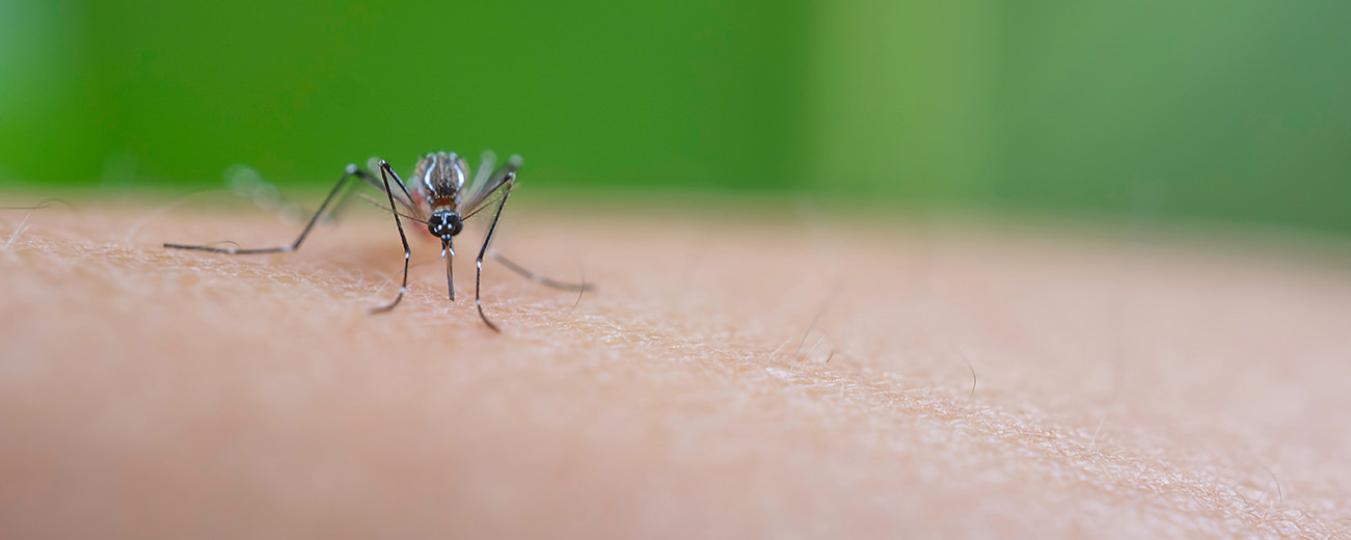Taking Action to Prevent Eastern Equine Encephalitis
Eastern Equine Encephalitis Virus (EEEV) is a serious and sometimes deadly virus transmitted to people and horses by the bite of an infected mosquito. Most persons infected with Eastern Equine Encephalitis Virus have no apparent illness. However, about 4-5% of humans with EEEV infections can develop a severe brain infection called Eastern Equine Encephalitis (EEE). Severe cases of EEE begin with the sudden onset of headache, high fever, chills, and vomiting 4 to 10 days after a mosquito bite. The illness may then progress to disorientation, seizures, or coma.
EEE is one of the most severe mosquito-transmitted diseases in the U.S. About one-third of people diagnosed with EEE die from the disease and there is significant brain damage in most survivors. While there is a vaccine for horses, there is no vaccine for people. Two new human cases of EEE were confirmed last week in Union and Atlantic counties. The New Jersey Department of Health confirmed the first human case of Eastern Equine Encephalitis in August and, to date, EEEV has been detected in 65 mosquito samples in 13 counties in the state.
Reducing Exposure to Mosquitoes
Reducing exposure to mosquitoes is the best defense against EEEV infection and infection with other mosquito-borne viruses. There are several steps you and your family can take to prevent and control mosquito-borne diseases.
- Use repellent: When outdoors, use insect repellent containing DEET, picaridin, IR3535 or oil of lemon eucalyptus on exposed skin and/or clothing. The repellent/insecticide permethrin can be used on clothing to protect through several washes. Always follow package directions. Insect repellent should not be used on children younger than 2 months old and oil of lemon eucalyptus should not be used on children younger than 3 years of age. If applying sunscreen, apply first and then apply repellent. (Applying sunscreen over insect repellent can increase systemic absorption of the repellent.)
- Wear protective clothing: Wear long sleeves/pants when weather permits.
- Install and repair screens: Have secure, intact screens on windows and doors to keep mosquitoes out and use air conditioning if you have it.
Limiting Mosquitoes on Your Property
Mosquitoes can lay eggs even in small amounts of standing water. You and your family can take the following steps to limit mosquitoes on your property and keep them from laying eggs near you:
- Empty standing water from flower pots, buckets, barrels, and tires. Change the water in pet dishes and replace the water in bird baths weekly. Drill holes in tire swings so water drains out. Empty children’s wading pools and wheelbarrows and store on their side after use.
- Dispose of water-holding containers that have accumulated on your property, especially discarded tires.
- Drill holes in the bottom and elevate recycling containers that are left outdoors.
- Clean up any trash or leaves that may be around your home or in rain gutters at least once a year.
- Aerate ornamental pools or stock them with fish.
- Clean and chlorinate swimming pools that are not being used. Mosquitoes can even breed in the water that collects on pool covers.
- Use landscaping to eliminate standing water that collects on your property.
New Jersey residents who need assistance controlling mosquitoes around their home can call their county mosquito control agency or 888-666-5968.

